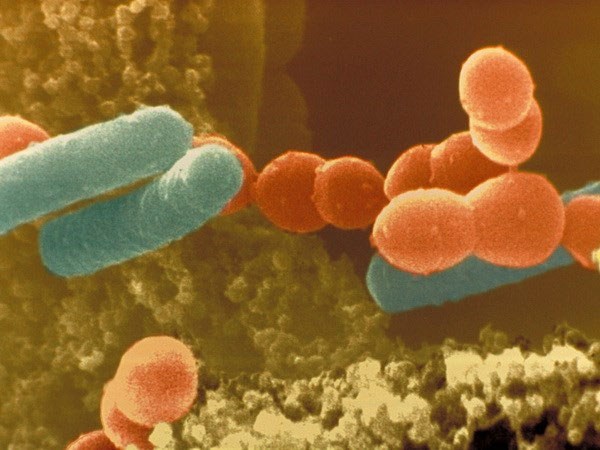Discover more types of beneficial bacteria in the intestinal tract
A group of Chinese and Danish researchers have identified more than 500 types of intestinal microorganisms and 800 viruses that can attack these microorganisms.
This finding could pave the way for new treatments, and could open a way for the current antibiotic resistance crisis.
Using a technology developed to analyze information on DNA sequences, researchers have identified a large number of intestinal bacteria , causing the number of intestinal bacteria to be identified from up to now more than doubled.
'Using our method, researchers were able to accurately identify and collect gene data from unknown microorganisms even in complex microbial communities,' said the professor. Søren Brunak, head of research with associate professor Henrik Bjørn Nielsen, said.

Artwork: Huffingtonpost.com
'This gives us an overview that we have never seen before ,' said Professor Soren Brunak.
Along with new insights into how bacteria and viruses interact, the results of this study will likely bring more information and may be new treatments for diseases like type 2 diabetes. , obesity, or even asthma.
The intestinal flora is a promising new area for scientists and health care professionals, and this is the first study to observe interactions between beneficial intestinal bacteria. and some viruses.
'This research tells us which virus attacks which bacteria, which greatly affects whether the attacked bacteria can survive in the intestinal tract for a long time ,' Henrik Bjørn Nielsen said. .
The researchers also stressed that these new findings are critical to the growing concern of antibiotic resistance, which is considered a global health threat.
Bjørn Nielsen also mentioned that studies of the use of bacteria and viruses in the fight against diseases did not receive interest during the time before the antibiotic resistance crisis occurred.
'Previously we tested the use of bacteria and viruses to fight diseases, but these tests were left aside, because antibiotic agents were still effective in treating many infectious diseases, " said the associate professor.
Bjørn Nielsen said: 'Now if we can learn more about which viruses attack any bacteria, microorganisms may be another alternative to antibiotic agents.'
The study is published in Nature Biotechnology.
- How does food strongly affect the intestinal tract?
- 'Hack' intestinal bacteria of cows can bring more meat and reduce pollution
- Check out the types of polar bacteria that are beneficial to humans
- Feces of newborns - abundance of bacteria!
- Identify herbivores, eat meat through intestinal bacteria
- Found intestinal bacteria beneficial in chicken eggs
- Green vegetables help boost digestion, prevent bacteria from causing disease
- Why is apply good for your stomach?
- 6 natural colon cleansing methods
- Unexpected discovery of beverages and beneficial bacteria supplements
- Find out how to bring cancer medicine to people more effectively with beneficial bacteria
- Antibiotics increase the risk of asthma in children
 Green tea cleans teeth better than mouthwash?
Green tea cleans teeth better than mouthwash? Death kiss: This is why you should not let anyone kiss your baby's lips
Death kiss: This is why you should not let anyone kiss your baby's lips What is salmonellosis?
What is salmonellosis? Caution should be exercised when using aloe vera through eating and drinking
Caution should be exercised when using aloe vera through eating and drinking